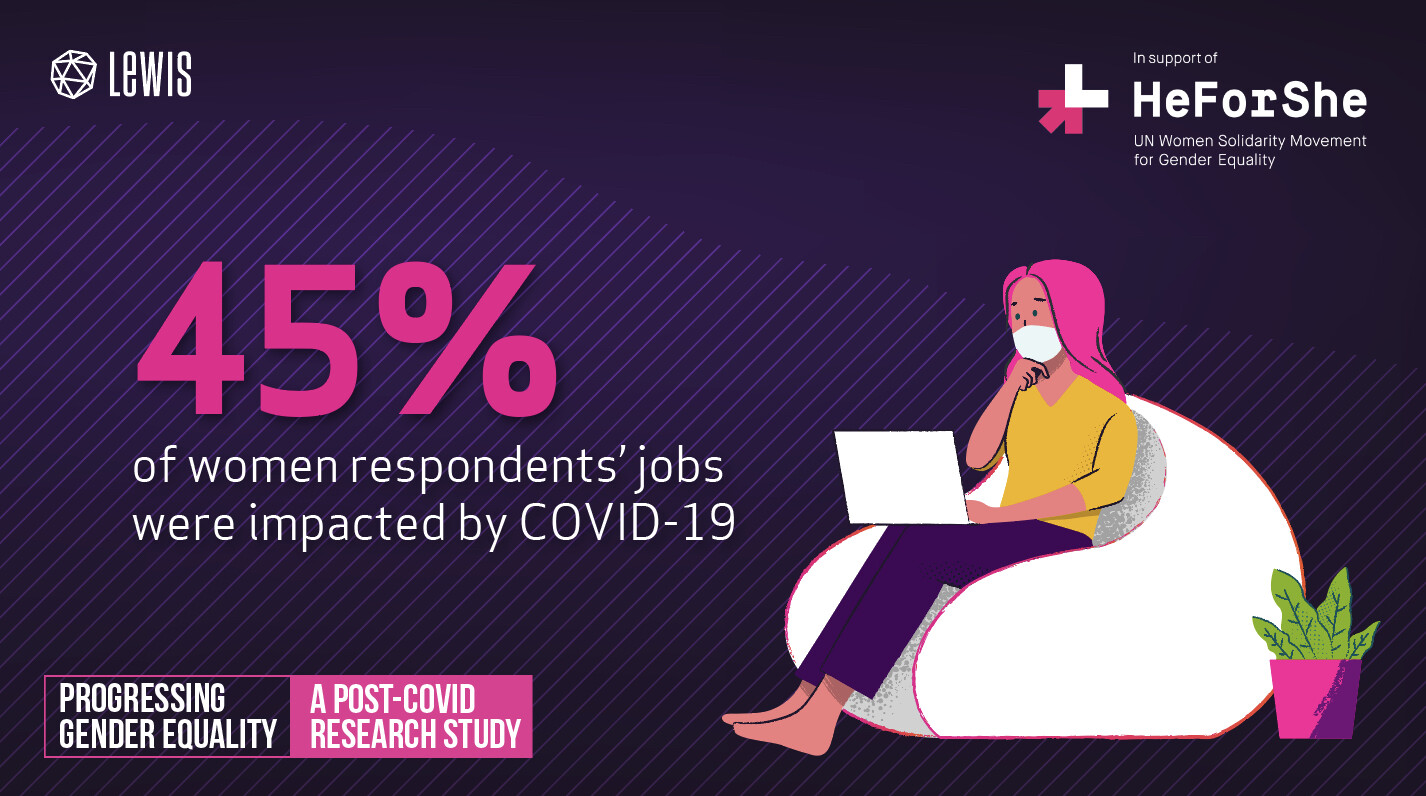Recent news articles set off alarm bells on the issue. CNN reported in December that the US economy lost 140K jobs in one month. The data revealed a shocking gender gap: Women lost 156,000 jobs, while men gained 16,000. Not only are women losing jobs, but they are also picking up the lion’s share of additional unpaid work caused by lockdowns. In a recent survey from the TUC, less than half said that they shared care responsibilities with a partner.
Our own survey, across 7K men and women around the globe, sadly reveals a similar trend. 45% of the women respondents in our survey said their jobs were impacted due to COVID-19. Since March 2020, they have experienced a big increase in unpaid household work. They report picking up the majority of work when it comes to home schooling (70%), childcare (65%), cooking (64%), taking care of elderly relatives (48%), washing clothes (44%) and grocery shopping (43%). More than forty percent (42%) of women across the world say they cannot take on paid work due to their (unpaid) caregiving responsibilities. If we do the math, these unpaid hours amount to 12.5 billion hours every single day. This equates to $10.8 trillion per year or 13% of global GDP.
When it comes to how people are treated in the workplace, only 67% of all respondents say men and women are treated equally. 33% of women say they feel undervalued in the workplace because of their gender. Yet 19% of the men surveyed globally don’t think gender inequality is a serious issue anymore.

Related Pushing for Progress: A Post-COVID Research Study
98% of women interviewed say they want men to get more involved in helping to reduce gender inequality. The good news is that 41% of men surveyed say they are ready to help. The survey shows, however, that they don’t always know how to do this. 15% of men are worried they will say the wrong thing and upset someone when talking about gender inequality.
Gender inequality is not a problem for women to fix on their own, and it doesn’t only affect women. True change cannot happen without conversation. It also cannot happen without half of humanity on board. Fostering an inclusive dialogue that continues over time is key to removing barriers and creating equal opportunity.
We conducted this survey in support of the HeForShe initiative. Created by UN Women, the HeForShe solidarity movement for gender equality provides a platform where a global audience can engage and become change agents for the achievement of gender equality in our lifetime.
HeForShe invites people around the world to stand together as equal partners to craft a shared vision of a gender equal world and implement specific, locally relevant solutions for the good of all of humanity. For more information or to pledge your support, visit www.HeForShe.org/en.
You don’t have to be a victim of injustice to want to fight it. That is why I hope everyone will join the HeForShe movement and help us achieve a world of true gender equality.



